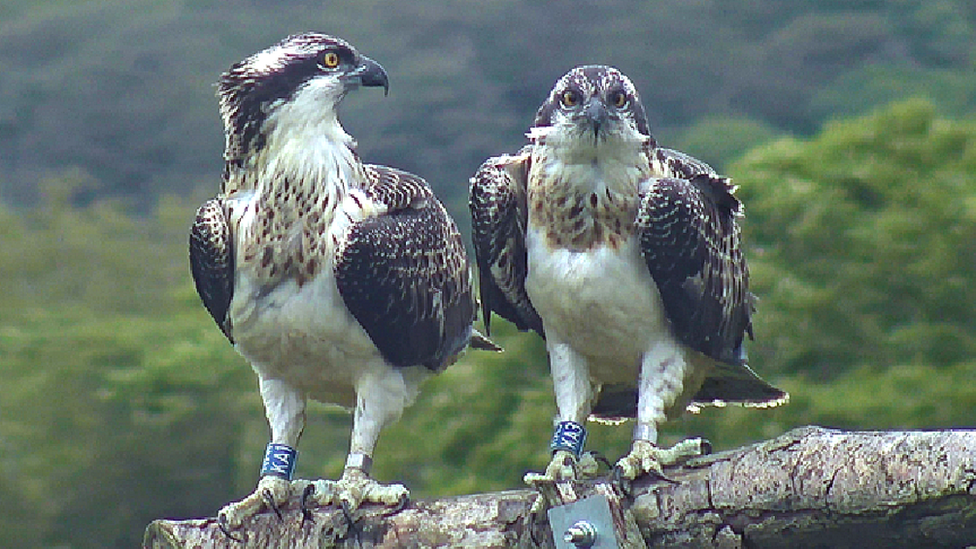Gwynedd osprey charity gives up hope bird will ever return
- Published
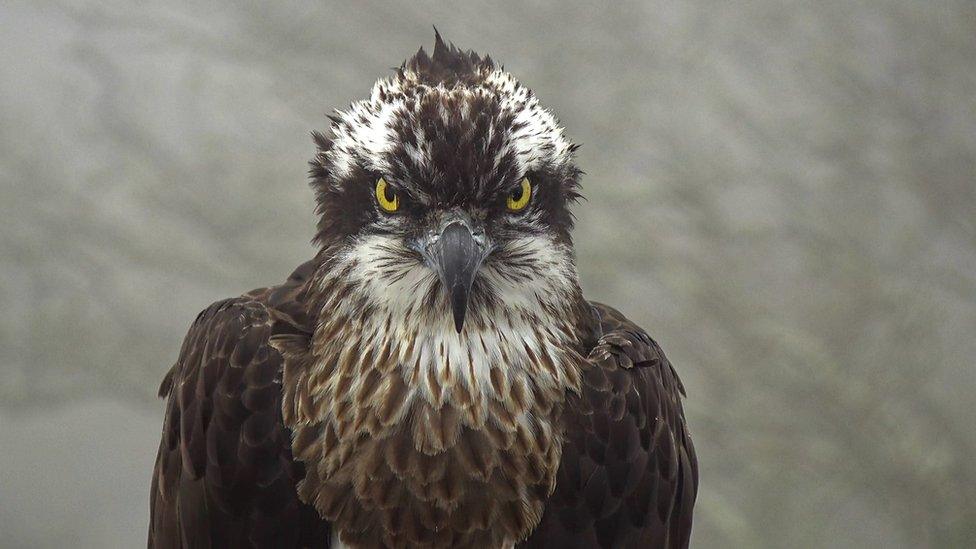
Mrs G, one of the UK's most successful breeding Ospreys, has not returned this year
A female osprey that has been coming to Wales to breed for 20 years may never return, a conservation charity fears.
Mrs G was due to return to Glaslyn Ospreys, Porthmadog, Gwynedd, for the 20th time this year.
Her partner, Aran, arrived on 3 April without Mrs G there to greet him and he has since spent much of the time alone on the nest.
Heather Corfield of Glaslyn Ospreys said staff were "upset" despite always knowing this day would eventually come.
Mrs G is one of the UK's most successful breeding female ospreys and had been breeding since 2004 in the nest she and her first partner built.
Over the years a total of 44 chicks successfully migrated from the nest under her care, with several of those going on to breed themselves, making her a grandmother to at least 130.
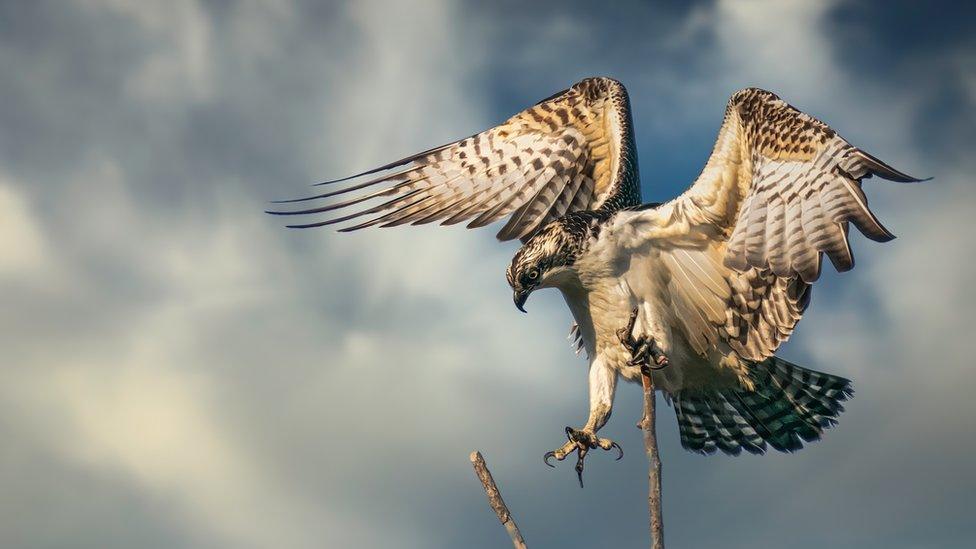
The majority of UK ospreys migrate to western Africa, more than 3,000 miles away, before returning in the spring
"She has been a quite remarkable bird and has made an immense contribution to the osprey breeding programme in the UK," added Ms Corfield.
"Thousands of people at home and abroad have avidly followed her story for almost two decades. She will always be remembered and celebrated by Glaslyn Ospreys."
Although it is not known where Mrs G spent her winters, the majority of UK ospreys migrate to western Africa, more than 3,000 miles away.
Many of her offspring have been sighed in Senegal.
Ms Corfield said it meant Mrs G has probably flown close to 120,000 miles migrating back and forth from Wales to Africa.
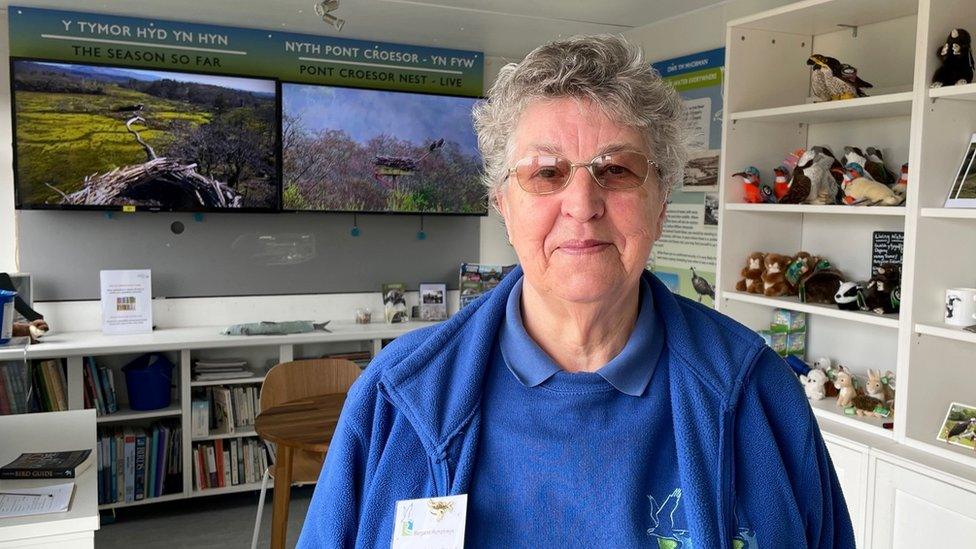
Glaslyn volunteer Margaret Humphreys says visitors are "devastated" by the loss of Mrs G
Glaslyn volunteer Margaret Humphreys said the loss of the osprey matriarch had broken everyone's hearts.
"Everybody is really sad about it - devastated one person told me today," she said.
"But we've just got to accept that she's not going to come."
The charity now hopes that Aran will attract a new partner and that chicks will be seen again in the nest this summer.
He has already been seen in the company of two new female ospreys who have visited the reserve for the very first time this spring.
"There's a good chance we will have another breeding pair here, with Aran," added Mrs Humphreys.
Related topics
- Published14 April 2023
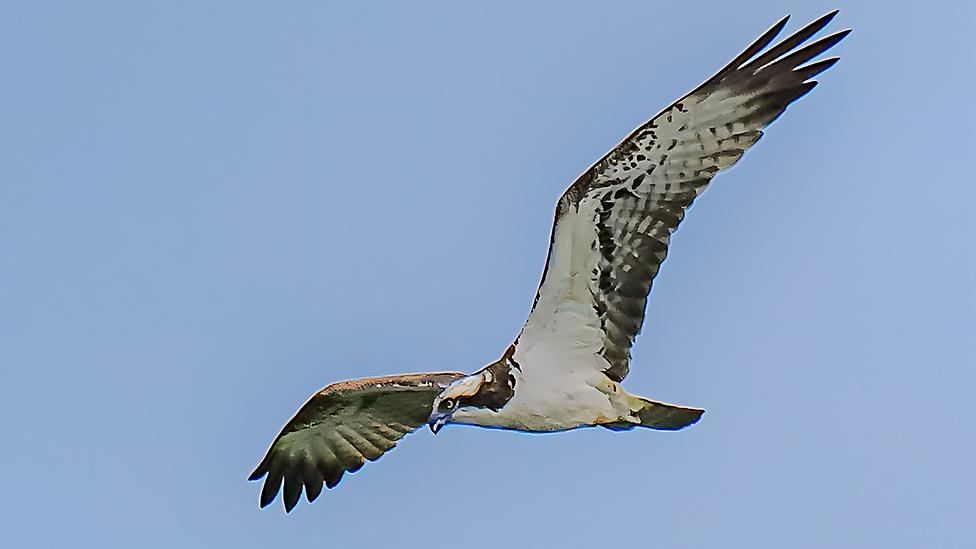
- Published14 October 2022

- Published27 July 2022
